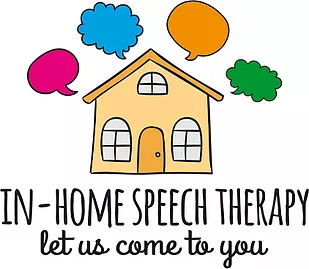What does a Speech-Language Pathologist do?
A Speech-Language Pathologist is trained to help assess and treat children and adults with various speech, language and feeding difficulties. Speech-Language Pathologists work in a variety of areas including children’s treatment centres, schools, hospitals and private practice. They provide assessment and therapy for a broad range of difficulties including articulation, language, stuttering, voice difficulties, accent modification, and feeding/swallowing issues. They can also work with a variety of populations from infants and toddlers to school aged children, adults, and with individuals with Autism or developmental disabilities. A Speech-Language Pathologist will conduct a detailed assessment and provide recommendations and/ or a therapy plan that best suits the individual’s needs.
What does a Communicative Disorders Assistant do?
A Communicative Disorders Assistant works together and under the supervision of a Speech-Language Pathologist. Communicative Disorders Assistants are specifically trained and educated in various areas of speech, language and communication. They do not conduct assessments, but are skilled providers of individual and group therapy in the areas of language, articulation, motor speech, fluency, augmentative communication and more.
Do I need a Doctor's referral?
No, a doctor’s note is not required to access our services. However, some extended benefit plans may require a doctor’s note in order to be reimbursed for Speech-Language Pathology services. It is best to check with your insurance provider to inquire about their specific policies.
Does the parent participate in the therapy?
If possible, it is preferred that the parents participate in therapy. If this is not possible, each session includes a home programming sheet with suggestions for home practice, game ideas and worksheets to bring home. A child may only see the therapist for an hour a week, so if parents have observed therapy and are comfortable practicing at home, they can easily double or triple their child’s therapy time!
Is my child too young for speech therapy?
Early intervention is very important when helping children with their speech, language, and communication skills. Speech-Language Pathologists work with children and parents/caregivers on communication skills as young as 12 months. When treatment begins this early, the focus is also on teaching the parent invaluable techniques to facilitate communication in the child’s natural environment.The “wait and see” approach is not recommended. If you suspect that your child’s language or communication is delayed you should seek the advice of a Speech-Language Pathologist.
Here are some milestones that children typically achieve by certain ages. If your child has not met any of these milestones, an assessment by a Speech-Language Pathologist is recommended.
By 18 months does your child…
- use around 20 words?
- respond with words or gestures to simple questions such as “what’s that?”?
- point to pictures?
- engage in some pretend play?
- identify some body parts?
- use a variety of consonant sounds such as p, b, n, m, t, d, and w?
By 24 months does your child…
- follow two-step directions?
- use at least 50 words or more?
- combine two words together?
- enjoy being with other children?
- have the ability to be understood 50-60% of the time?
- form words and sounds easily?
- use a variety of words including nouns, verbs, pronouns, prepositions?
- hold books the right way and turn the pages?
How many sessions will my child need?
This must be one of the most common questions we get asked! This depends on many factors including the child’s age, the type and severity of his or her errors, participation of the child and the amount of practice done outside the therapy session. Parent/caregiver participation and home practice are one of the most important factors. You can easily double the amount of therapy your child receives weekly by practicing even 10 minutes a day.
Are your services covered by OHIP?
Unfortunately our services are not covered by OHIP. However, we do provide a receipt for each session including a Speech-Language Pathologist’s registration number which can be claimed under eligible extended benefit plans or for tax purposes. Check with your provider to see if Speech-Language Pathology services are covered under your plan.
What are your rates?
We provide competitive rates according to the fee structure set out by the Ontario Association of Speech-Language Pathologists and Audiologists (OSLA). Rates for service will be discussed and agreed upon prior to the first session. Also included in our session rate is a personalized home program, homework materials and suggestions for parents/caregivers.


